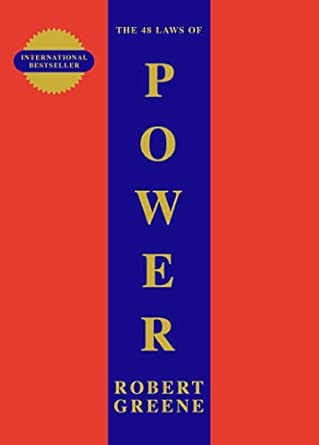Reviewed by Aisha Zardad
“The 48 Laws of Power” by Robert Greene is a compelling and provocative exploration of the dynamics of power and influence throughout history. First published in 1998, the book has become a cult classic, appealing to a wide audience ranging from business professionals to creatives and even political figures.
The book is structured around 48 distinct laws that Greene distills from historical events, figures, and philosophical thoughts. Each law is presented with historical anecdotes, quotes, and illustrative examples that bring the concepts to life. Greene encourages readers to understand the frequency of manipulation and strategy in personal and professional relationships.
Greene delves into the darker aspects of human nature, emphasizing that power dynamics often rely on deception, cunning, and manipulation. He pulls from various historical figures—from Machiavelli to Sun Tzu—to highlight timeless strategies. Many readers find the book controversial because Greene advocates a pragmatic approach to power that can seem ruthless or morally ambiguous. This can lead to debates about the ethics of strategies proposed in the book. Beyond teaching how to wield power, Greene also provides insight into how to protect oneself from others’ manipulative tactics. Understanding the laws can be empowering for those looking to navigate complex relationships and environments.
Greene’s writing is engaging and often reads like a historical narrative, which captivates readers. The style is didactic, with a strong emphasis on actionable insights drawn from both ancient history and modern incidents. Each law is succinctly explained, making it easy for readers to digest. Critics of the book argue that its cynical view of human relationships can foster distrust and encourage unethical behavior. Some label it as a guide for manipulation rather than a constructive tool for leadership. It is crucial for readers to approach the book with discernment, understanding that not every law may align with their personal values or ethical standards.
“The 48 Laws of Power” is a fascinating read that offers a lens through which to view power dynamics in various contexts. While it provides valuable insights into strategy and human behavior, readers should remain conscious of the ethical implications of employing such tactics in their own lives. Ultimately, the book serves as a reminder of the complex interplay of power, where knowledge can both elevate and undermine relationships.






